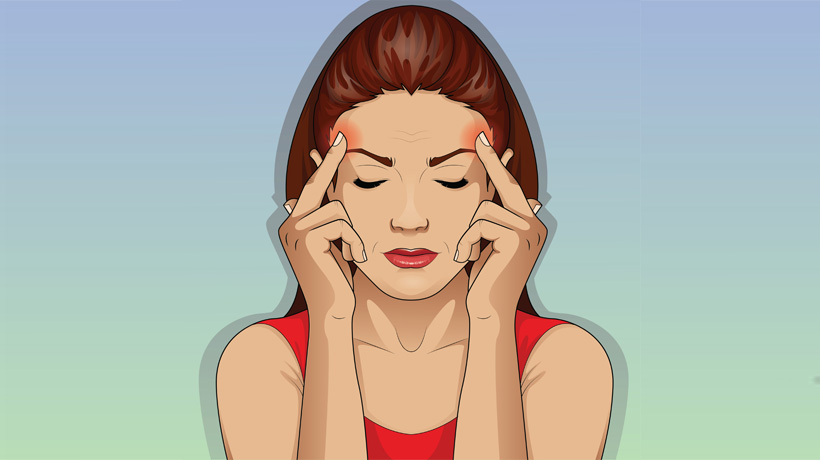A headache from stress, loud noises, or a hangover can be an inconvenience. Most, if not all, of us have headaches, and usually some peace and quiet (and maybe ibuprofen) can chase it away.
Many people confuse a migraine for simply another headache, but anyone who has had one knows the pain can be debilitating. A migraine is a head pain that’s so encompassing that the person suffering from one isn’t able to do much more than lie down in a quiet room.
July 22, 2019 is World Brain Day, led by the World Federation of Neurology and International Headache Society. This year’s theme is “Migraine: The Painful Truth.”
According to those organizations, migraines affect one in seven people and are one of the leading causes of disability in the world. Moreover, about three in four people who have migraines are women, particularly between the ages of 15 and 55, according to the US’s Office on Women’s Health.
What causes migraines?
Most researchers think abnormal changes in substances produced in the brain cause migraines. The ensuing inflammation then causes blood vessels in the brain to swell and press on nearby nerves. Genes are also linked to migraines, but researchers don’t exactly know the cause.
Common causes of migraines may include changes in sleep, skipped meals, bright lights, loud noises, hormonal changes during menstruation, stress, red wine, caffeine, foods with tyramine (like aged cheese, hard sausages, and soy products), foods with nitrates (such as hot dogs and lunch meats), and aspartame. However, these causes vary based on the individual.
What does it feel like?
The symptoms of a migraine might start one or two days before the attack. The Mayo Clinic says constipation, mood changes, food cravings, neck stiffness, and increased thirst and urination can indicate an attack.
Some people experience a sensation called an aura, which occurs before or with the headache. An aura can include visual disturbances, such as flashes of light or blind spots, or other disturbances, such as tingling on one side of the face or in an arm or leg and difficulty speaking. A person might also hear noises or music or face uncontrollable jerking or other movements. These tend to last 20 to 60 minutes.
During the attack itself, a migraine can last anywhere from four to 72 hours. A migraine comes with pain on one or both sides of the head; throbbing, pulsing pain; sensitivity to light, sound, smell, and/or touch; and nausea and vomiting.
Fatigue and confusion usually follow the attack.
5 steps for migraine relief
People who suffer from migraines may feel helpless, but there are a few ways to cope with a migraine attack immediately. Afterward, keep a diary of the migraine, noting the time of day as well as any diet and lifestyle habits that may have triggered it. Anything from sleep patterns to food ingredients may trigger a migraine, and the causes tend to be more potent as a combination.
Go dark
Migraines can cause sound and light sensitivity, so try to find a quiet, dark room. Close the bedroom door and windows and lie down, or if you’re at work, explain to your boss that you need to be excused to an empty room.
Adjust the temperature
An ice pack or a cool, wet cloth can numb the sensation of pain. Alternatively, heating pads can relax tense muscles, as well as warm showers or baths.
Drink water
Dehydration can aggravate migraines, so try to drink water when you can. Since nausea may discourage you from drinking anything, try to sip water slowly until you can keep it down.
Massage it out
Rubbing the points of pain may bring relief. If you find any movement to be too overwhelming, try asking a friend to help massage those points for you. Larger massage movements may also help relax the body and ease tension.
Try essential oils
Depending on the severity of the migraine, some essential oils may bring relief. Peppermint oil, rosemary oil, lavender oil, chamomile, and eucalyptus oil all have properties that can relieve headaches.
Sources:
https://www.wfneurology.org/world-brain-day-2019
https://www.womenshealth.gov/a-z-topics/migraine
https://www.mayoclinic.org/diseases-conditions/migraine-headache/symptoms-causes/syc-20360201
https://www.mayoclinic.org/diseases-conditions/migraine-headache/in-depth/migraines/art-20047242
https://www.healthline.com/health/essential-oils-for-headaches
https://www.womenworking.com/remedies-headaches-migraines/



